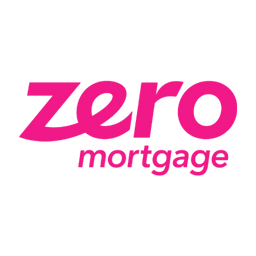When refinancing your home to a shorter mortgage, you’ll need to ask yourself a few questions:
- What do I want my new loan term to be?
- How much more can I afford to pay each month?
- Which lender is right for me?
- Do I want a fixed rate or an adjustable rate?
How To Decide If A Shorter Mortgage Is Right For You?
Homeowners often choose to refinance their homes for a number of reasons. Some homeowners want to take advantage of lower interest rates, while others want some disposable funds and have the home equity to benefit from a cash-out loan. Some homeowners want shorter monthly payments, and others want a shorter mortgage payment period overall. If you’re a homeowner who wants to refinance to a shorter-term, read along to learn about some important questions you’ll need to ask yourself before making any major decisions.
1. What Do I Want my New Loan Term to Be?
One of the first things you’ll need to figure out when refinancing to a shorter-term is how short you’d like that term to be. Some homeowners refinance to a shorter-term of 15 years, and others to 10. It all depends on how much you can afford to pay monthly and what your financial priorities are. Maybe you’d like to be debt-free as soon as possible so you can live worry-free, or maybe you’d just like to make sure that your home is paid off before retirement. Either way, you must keep in mind that the life span of your loan is going to play a major factor in determining what your monthly payments look like, so also be prepared to ask yourself the next question on our list.
2. How Much More Can I Afford to Pay Each Month?
Of course, refinancing to a shorter loan term will mean that your monthly payment will increase, even with a lowered interest rate. It’s important for you to ask yourself how much more of your income you can dedicate to paying off your mortgage. If you have other major priorities, like children or student loans, you’ll need to spend some time figuring out whether you can afford to funnel more money into mortgage payments. If you can, how much? Remember — you still need to budget your funds so that you have emergency cash at the end of each month for unforeseen expenses.
3. Which Lender is Right for Me?
Refinancing your home to a shorter mortgage term is no easy feat. A refinance is complicated and costly, and the process is made even more overwhelming because of the plethora of lenders in the market, who all offer unique payment rates, fees, and conditions. One question you will need to spend a lot of time asking yourself is, which lender offers the rates that best suit my needs to refinance to a shorter-term? You will find that a great portion of the time you spend during the refinance process will be in comparing the offerings of the various mortgage lenders.
4. Do I Want a Fixed Rate or an Adjustable Rate?
It’s important to determine whether you want a fixed-rate mortgage or an adjustable-rate mortgage. Many homeowners prefer a fixed-rate loan when refinancing because they can lock in low-interest rates for the life of their loan. In our present economy, interest rates are relatively low, but they’re expected to increase over the years to come. Choosing a fixed-rate mortgage would mean that you could secure today’s low-interest rates, even as the market rates go up. On the other hand, adjustable-rate mortgages tend to have lower interest rates in the initial stages of the loan.










